The Core of Digital Transformation: Five Concepts and Use Cases of AI Technology
Elice
12/22/2022
What is artificial intelligence, the key to accelerating digital transformation?
In the midst of the COVID-19 pandemic, most of us have been forced to communicate in an untact environment, including in business. Most businesses, educational institutions, and even governments have tried to overcome the physical limitations imposed by the pandemic by using IT technology. This process has made businesses in particular realize the need for digital transformation (DX) across their business processes.
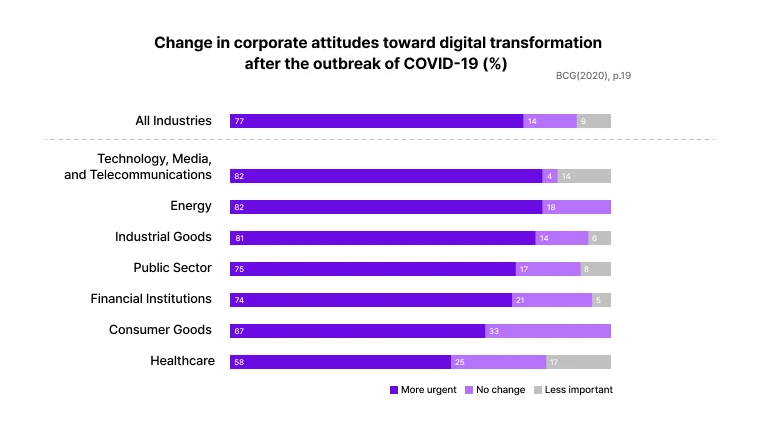
In times of chaos, what exactly is the urgently needed digital transformation (DX) that companies are feeling? DX refers to digitizing key business processes such as strategies, communication, and systems within a company based on IT technology. At the core of this acceleration of DX, there is a crucial IT technology: AI. Let’s explore what AI technology is, how it serves as the key technology for helping companies with digital transformation, and why AI is at the heart of DX.
What is DX? Meaning and Core Technologies - Watch Now
AI technology concepts and types
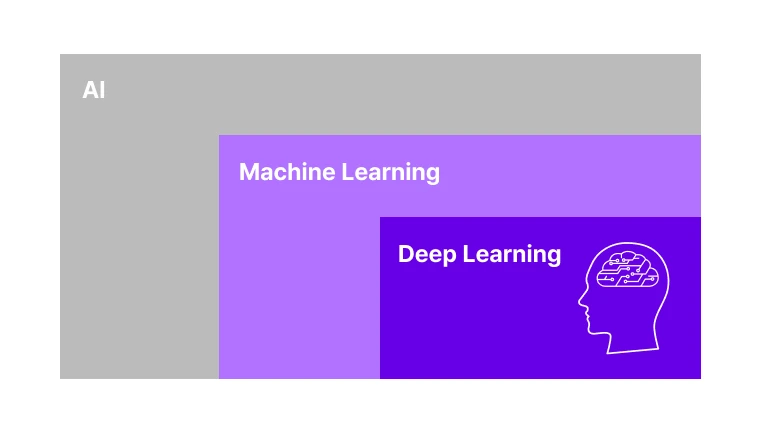
AI technology is a technology that realizes human learning ability, reasoning ability, intelligence ability, and other areas related to thinking and judgment through computer programs. One prominent type of AI technology is Machine Learning and within the domain of Machine Learning, Deep Learning. Firstly, Machine Learning refers to computer algorithms that increase in performance as they are exposed to more data. It can make optimal decisions and predictions. Taking a step further, Deep Learning utilizes neural networks similar to human neurons. This technology can not only learn structured data but also handle unstructured data with many variables. Deep Learning is widely used for tasks such as predicting the future, classifying data, and even generating new data.
Why AI technologies are key to DX
Why are these AI technologies key to accelerating DX? As we’ve seen, AI technologies digitize areas related to human judgment and help us make optimal decisions based on data analysis. With AI analyzing massive amounts of data at high speeds in the process of making optimal decisions, humans can focus on making more important decisions. With AI technology rapidly analyzing vast amounts of data to derive optimal decisions, humans are freed to focus on more critical decision-making tasks. Consequently, AI technology that efficiently streamlines overall business processes has become the core driver of accelerating digital transformation(DX).
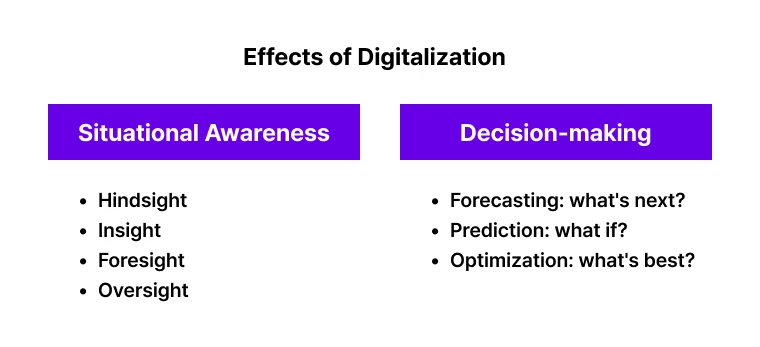
Indeed, we have explored key concepts such as what digital transformation (DX) is, the role of artificial intelligence technology in assisting DX, and why AI is a core technology in accelerating DX. Indeed, companies have realized the indispensable necessity of implementing digital transformation (DX) across their entire business processes, especially in the wake of the COVID-19 pandemic. Companies have utilized artificial intelligence technology in various ways to achieve successful digital transformation. Let’s now explore five real-life use cases of AI implementation in companies.
Five Cases for AI Applications
Process & Logistics: Smart Factory
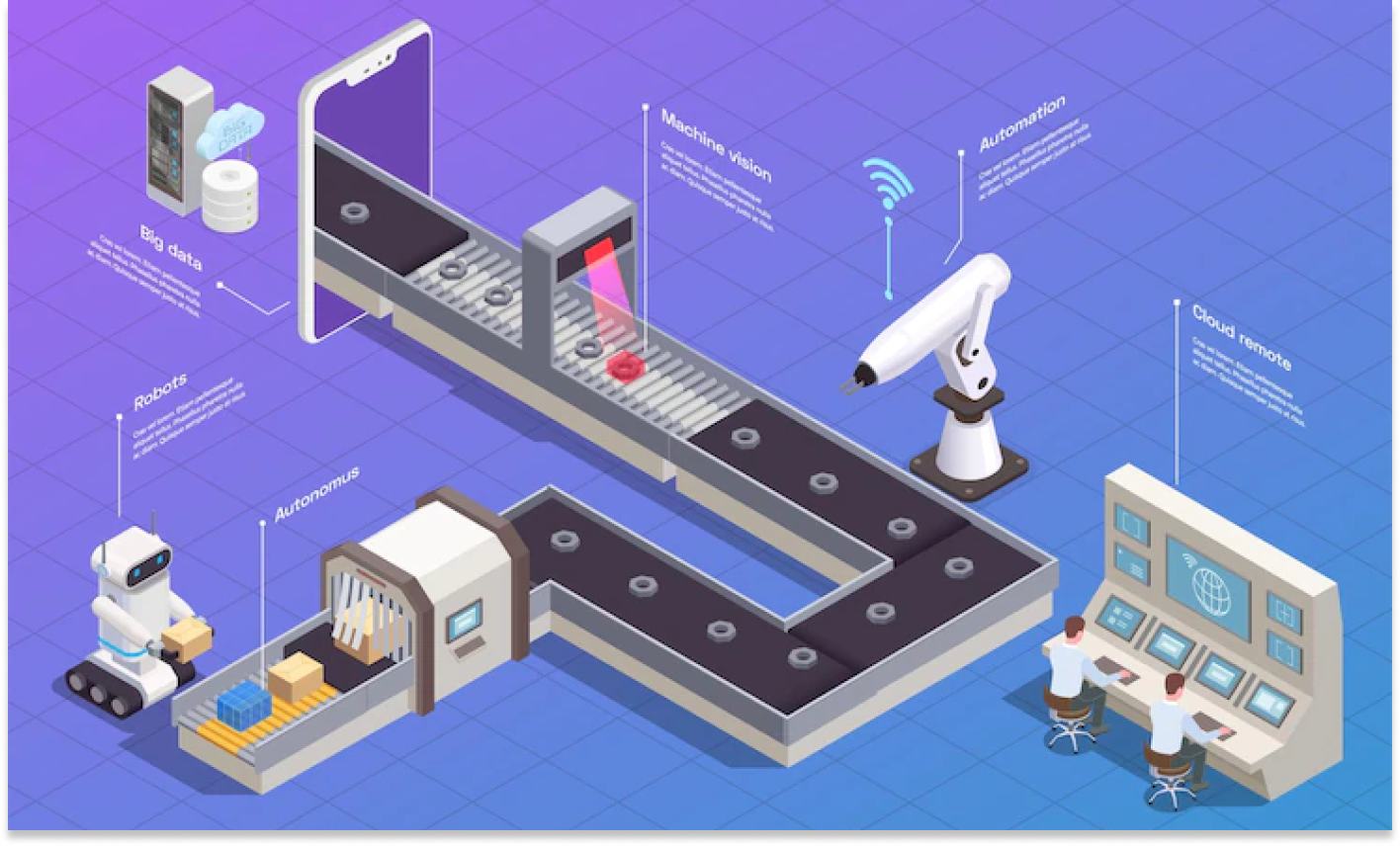
The first use case of artificial intelligence for digital transformation (DX) is none other than Smart Factory. A Smart Factory is referred to as such because it applies artificial intelligence to factory operations, allowing it to handle processes in a smart manner, particularly in areas like processes and logistics.
Amazon, the world’s largest e-commerce site, is a prime example. They are known to invest billions of dollars in using artificial intelligence technology in their warehouses for logistics automation. In Amazon’s warehouses, robots equipped with autonomous driving capabilities directly locate and carry items ordered by customers. These robots collect and process data. Moreover, AI technology, specifically utilizing deep learning, is employed to analyze sounds generated by machines. This allows for the early detection of malfunctions or the need for component replacements, reducing losses in the process.
Sales - Personalized Product and Service Recommendations
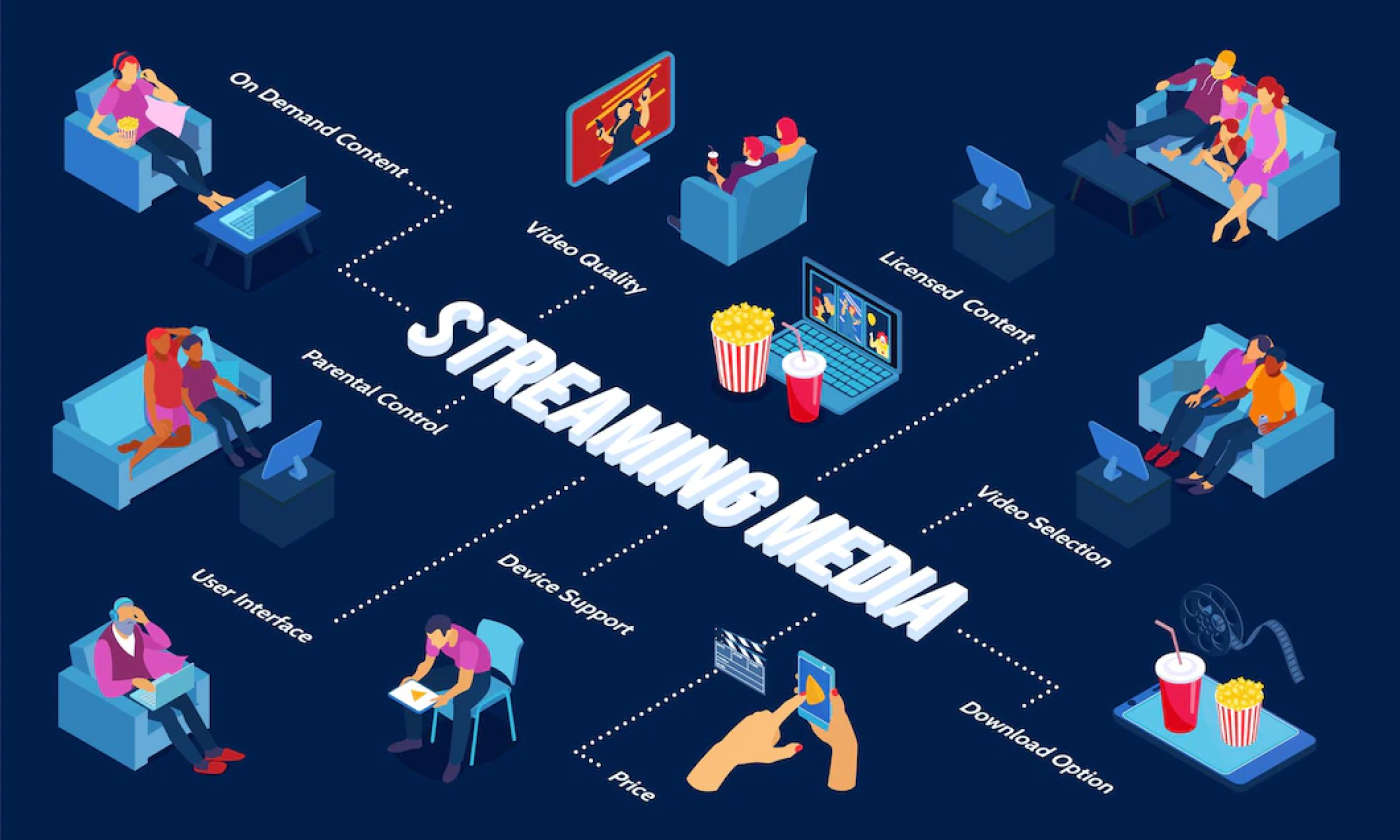
The second use case of AI in DX is sales. It involves the application of personalized recommendation features tailored to users in the sales processes. This is called a data-driven personalized recommendation feature. Such personalized recommendation features play a crucial role in analyzing individual customers and increasing sales by providing tailored suggestions.
One prominent example is Netflix, which analyzes user behavior patterns and preferences to discover and recommend videos that users are likely to enjoy. The underlying mechanism involves utilizing machine learning, a core AI technology, to analyze the viewing patterns of users based on their historical viewing data. By leveraging this analysis, platforms like Netflix recommend content to users.
How to Turn Your Employees into AI Experts for Digital Transformation - Learn from Elice
Marketing - Auto-Edit

The third use case for AI for DX is the use of AI video editing in marketing business processes. In the marketing team, the aim is to provide appealing content such as videos to potential customers, with the goal of increasing conversion rates. For this purpose, high-quality video production is essential. Utilizing deep learning, a subset of AI can streamline and accelerate the video production process. This enables the creation of high-quality videos within a shorter timeframe.
One notable example is at the world’s most prestigious tennis tournament, Wimbledon, where AI automatic highlight editing technology is utilized to extract and create highlight reels. The mechanism involves AI analyzing match progress using deep learning technology on unstructured data such as intensity levels, rally counts, and players’ ceremonies. This analysis enables the system to provide highlight videos within 5 minutes of the match ending.
Customer Management – Chatbots
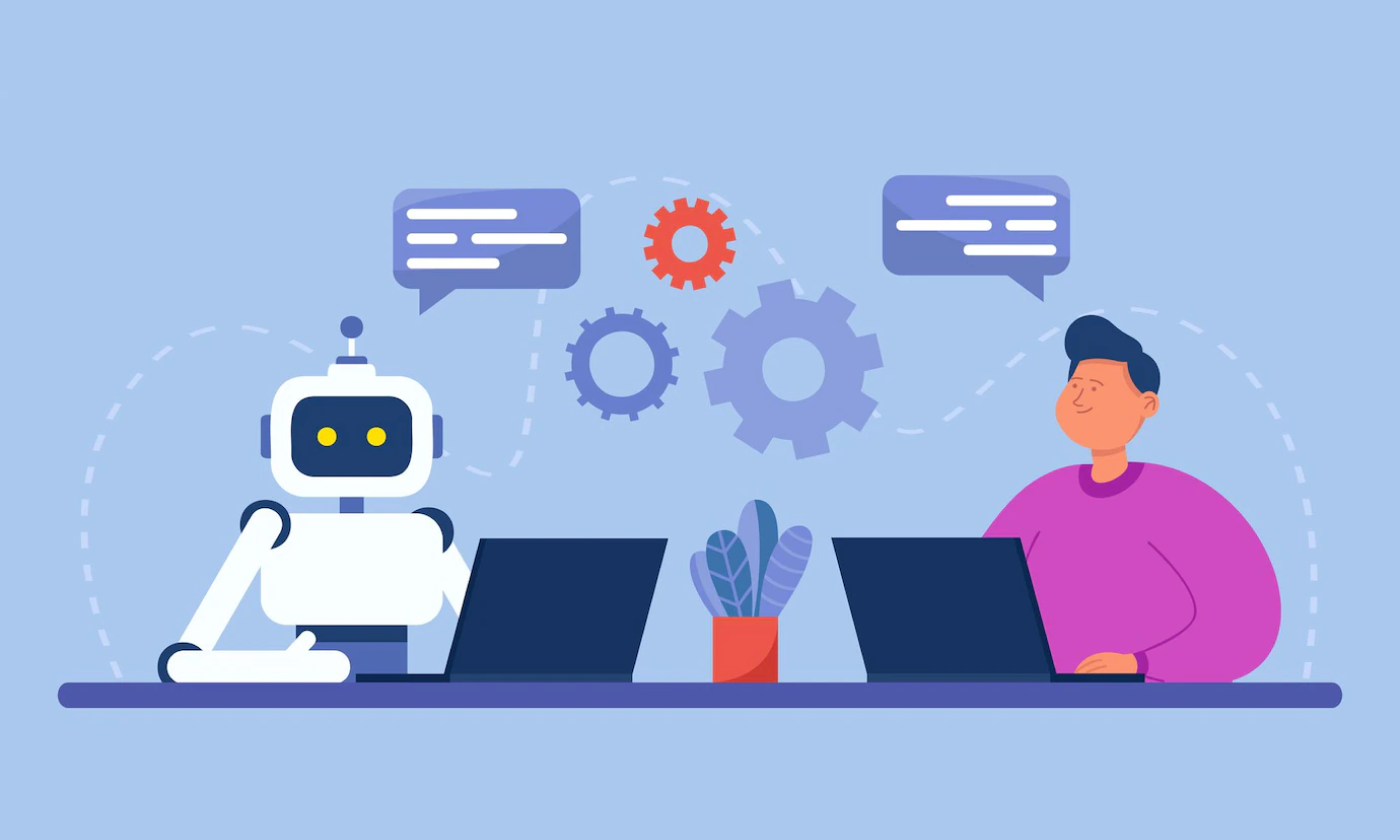
The fourth use case of AI for DX is the adoption of chatbots in CS work processes. Chatbots allow organizations to serve customers 24 hours a day, regardless of the day or time of day. Furthermore, AI can play a significant role in identifying the questions customers have and finding meaningful data for businesses.
For instance, British Airways employs chatbots to act as butlers, gathering information about restaurants visited by celebrities. This data is then analyzed using machine learning, and the chatbots provide customers with useful restaurant recommendations, sparking the interest and satisfaction of many customers.
Security Management - Facial Recognition
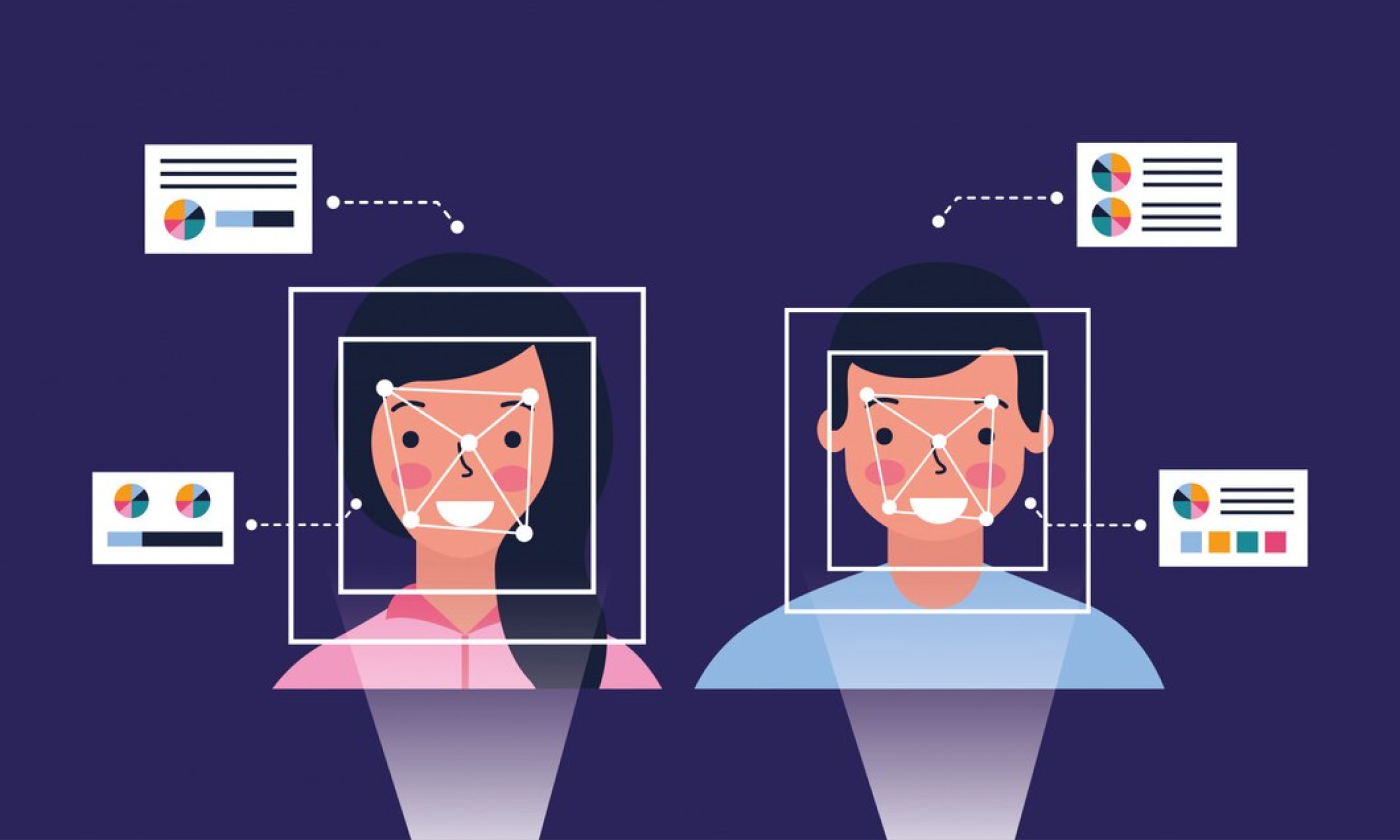
The last use case of AI for DX we’ll discuss is facial recognition technology, which is useful in security work processes. After the COVID-19 pandemic, the introduction of remote work has made security issues related to information leakage even more crucial. Utilizing deep learning technology within AI, facial recognition technology can be incorporated into in-house computers to bolster security and tackle these issues.
Specifically, Shinhan Bank has implemented facial recognition technology, known as Face Locker, on laptops used by remote customer service center employees. This technology allows employees to perform tasks only when their faces are visible in front of the laptop.
In this text, we have examined AI technology, a core component of accelerating digital transformation (DX), and explored five use cases of its application. We hope you consider and explore the AI applications for digital transformation (DX) discussed today to see if there are any AI solutions suitable for adoption in your company.
The Fastest Way to Digitally Transform Your Organization - Learn from Elice
*This content is a work protected by copyright law and is copyrighted by Elice.
*The content is prohibited from secondary processing and commercial use without prior consent.
- #DX
- #insight
